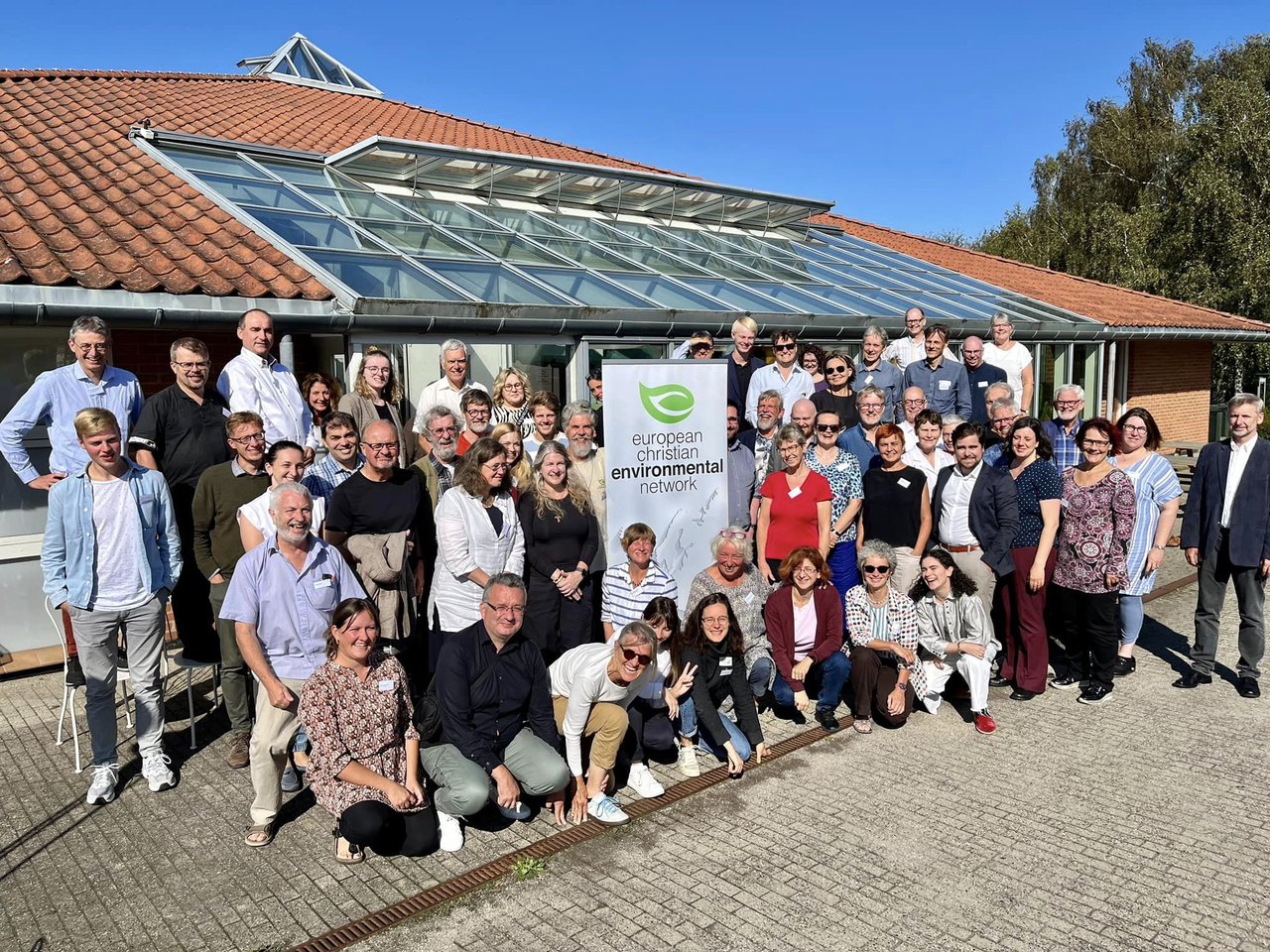The European Christian Environmental Network (ECEN) held its 2023 General Assembly from August 31st to September 3rd in Roskilde, Denmark, marking the 25th anniversary of the organization. The assembly included over 80 participants from different churches across 25 European countries. Representing the Reformed Church in Hungary (RCH) was Tamás Kodácsy, a Reformed pastor, chair of the Eco-Congregation Movement of the RCH, and a Senior Research Fellow with the Institute of Care for Creation at Károli Gáspár University’s Faculty of Humanities and Social Sciences.

Founded in 1998, ECEN is a network of churches and Christian believers from different European countries working together to promote ministry on environmental issues. In 2014, ECEN hosted its 10th assembly in Balatonszárszó. The title for this year’s ECEN assembly was “Every part of creation matters,” with a message inviting churches in Europe and other partners to engage in a dialogue to help realize the way toward a more sustainable future. The Reformed Church in Hungary fulfills this commitment through the progress of the Eco-Congregation Movement in Hungary, an initiative promoting ethical and sustainable environmental practices.
The Eco-Congregation movement focuses on a “care for creation” approach, which emphasizes conserving and guarding the created world. The movement has included organized projects, campaigns, events, and representation in organizations such as ECEN to raise awareness and mobilize individuals toward sustainable living. For example, the Eco-Congregation Movement maintains a research workshop at Károli Gáspár University and works closely with the community on ways to make the university greener. In 2020, the movement joined the Hungarian Cyclist Club in their bike breakfast event to highlight the sustainability of cycling. It even organized a bike race for students at Károli Gáspár University.
In 2019, the Church of Scotland and the Reformed Church in Hungary collaborated on a project founded by ECEN and the partner churches. Eco-congregation Hungary, the Department of Care for Creation (Károli Gáspár University of the Reformed Church in Hungary), Eco-Congregation Scotland, and a UK charity, The Orchard Project, launched the Church and Community Orchards Twinning project. The project aimed to raise awareness for biodiversity by encouraging church communities to participate in planting, feeding, and harvesting fruit trees.
Following the Scottish eco-congregation model, churches and local organizations can qualify as an eco-congregation if they “take active steps to protect the created world through their daily efforts and overarching commitment to saving creation” and demonstrate their commitment to this initiative for four years. They are eligible to receive the Eco-Congregation title. In 2018, the Eco-Congregation Hungary received the Roman Juriga Award from the ECEN, an award granted for “inspirational innovation for church environmental projects,” according to the ECEN website.
The discussion paper for this year’s ECEN General Assembly describes “The growing interest of churches in the protection of creation” as “an expression of core biblical principles, an expression of Christian faith, and the basis for understanding and responding to the ecological crisis.” The biblical frame for the discussion paper, and of care-for-creation more broadly, punctuated how intrinsic the message of environmental consciousness is to discipleship, underscoring that “As [Jesus’] disciples, we should also consider ourselves as part of creation, neither above it nor outside the vulnerable natural web of life of which we are part.” Green theology encourages us that celebrating these relationships within the natural world is imperative to “confronting ecological crises from a perspective of hope.”

Tamás Kodácsy, a Reformed pastor and Senior Research Fellow with the Institute of Care for Creation at Károli Gáspár University, was elected at this year’s assembly to serve on the five-member board of the organization. In addition to his role on the board and as chair of the Eco-Congregation Movement for the RCH, Kodácsy heads the theological working group as part of the Enabling Team at ECEN. Grounded in the belief that “theology gives us a wider perspective and continuous aim to guard the creation entrusted on us,” this working group seeks “to express and share theological thoughts about stewardship for the created world, and listen to God's prophetic words to us.”
The assembly's closing statement highlighted the “escalating urgency seen in fire, flood, famine, and migration across our continent and the world.” It emphasized the resulting imperative that individuals, churches, and organizations “are fully engaging in transforming society.” The organization committed itself to supporting and encouraging churches “involved in challenging unjust structures and building hope for our common future” and continuing to network and connect churches and organizations in these care-for-creation initiatives. In its final call to action, the assembly urged the churches “to engage with and promote networking in further developing eco-theology, and practical steps in eco-management of churches, and to support ECEN as an integral part of our ecumenical space.”